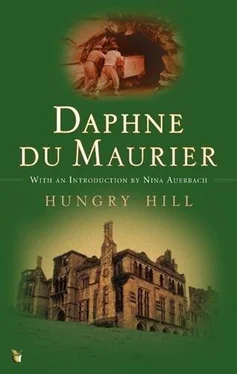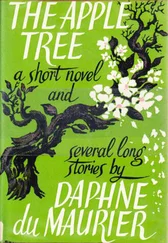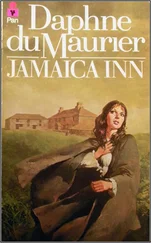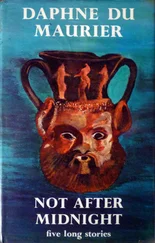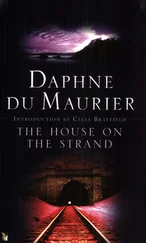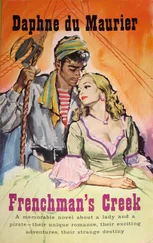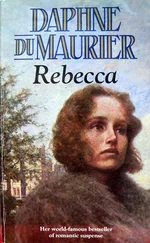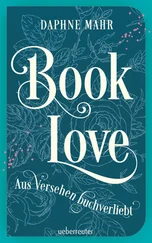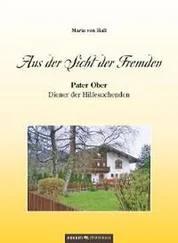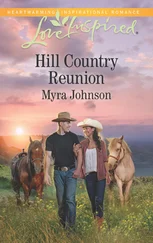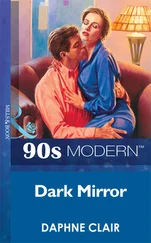Daphne du Maurier - Hungry Hill
Здесь есть возможность читать онлайн «Daphne du Maurier - Hungry Hill» весь текст электронной книги совершенно бесплатно (целиком полную версию без сокращений). В некоторых случаях можно слушать аудио, скачать через торрент в формате fb2 и присутствует краткое содержание. Жанр: Историческая проза, на английском языке. Описание произведения, (предисловие) а так же отзывы посетителей доступны на портале библиотеки ЛибКат.
- Название:Hungry Hill
- Автор:
- Жанр:
- Год:неизвестен
- ISBN:нет данных
- Рейтинг книги:3 / 5. Голосов: 1
-
Избранное:Добавить в избранное
- Отзывы:
-
Ваша оценка:
- 60
- 1
- 2
- 3
- 4
- 5
Hungry Hill: краткое содержание, описание и аннотация
Предлагаем к чтению аннотацию, описание, краткое содержание или предисловие (зависит от того, что написал сам автор книги «Hungry Hill»). Если вы не нашли необходимую информацию о книге — напишите в комментариях, мы постараемся отыскать её.
Hungry Hill — читать онлайн бесплатно полную книгу (весь текст) целиком
Ниже представлен текст книги, разбитый по страницам. Система сохранения места последней прочитанной страницы, позволяет с удобством читать онлайн бесплатно книгу «Hungry Hill», без необходимости каждый раз заново искать на чём Вы остановились. Поставьте закладку, и сможете в любой момент перейти на страницу, на которой закончили чтение.
Интервал:
Закладка:
John-Henry Brodrick, is believed to be in the country at the present time."
He knelt upon the ground, looking at the paper, and the first blind rage that filled his heart died suddenly away, leaving him cold, and stupefied, and numb.
A lark rose from the ground to greet the day, and the mists rolled back, baring the bright sun. In the far distance shimmered the pale sea. And while the ruins of his home and the wreckage of his dreams stared up at him from the printed page, John-Henry saw once again the eyes of the man in the hotel in Slane, and the blue-eyed, freckled Tim grinning at him over the pack of cards, as, pledging John-Henry's future in a flask of whisky, he whispered..
"Ourselves Alone."
The anger was spent, and the sorrow too. It seemed to him that he looked upon something that would stand for ever as a symbol in his heart, and could never be destroyed, whatever the fire might have done to the bricks and stones. The past would always cling to him, the unseen, ghostly hands of the people he never knew, but who had so great a part in him. This was no farewell, standing amongst the rubble. In a sense it was a dedication to the future. One day he would understand in full measure what it was that he had lost, and he would return again, because this was where he belonged. Now, being young, rage and grief that have such sharpness in their coming would quickly pass, and even now he felt something of a schoolboy's excitement bent on treasure-seeking, as he stirred the embers with hi? feet and looked for the lost treasures.
The people had great delicacy. They stayed away, they did not trample the grounds and stare at the blackened walls. He had his heritage to himself. And he knew that they had taken already the things they wanted, for outside one of the cottages in Oakmount was part of a dresser that he recognised, and a little child at the gatehouse was playing with a porcelain vase that had stood once on the drawing-room mantelpiece.
There were other things, no doubt, lying snug and secure in the cottages at Doonhaven, for a fire, like a wreck, is public property until law and authority walk in. John-Henry was neither law nor authority. He was someone who must take his chance in a country that was torn in civil war, and if his possessions were lost to him he must suffer in silence. Little remained, then, that he could bring away, except that lying on the bank, untouched and quite unharmed, was the smiling portrait of Great-great-aunt Jane, and he was glad of this because he had always loved it, and his mother should have it in her house. The curious thing was that from a little distance the walls of his home appeared untouched. The chimneys stood, and all the windows, and it was only on approaching closely that he could see that nothing had been left of the inside, and the ceiling was the sky.
Yet the foundations of every room remained. And he could walk amongst the rubble and recognise each room, although no room remained. The old part of the house had suffered most. The new wing, always untenanted, looked as it must have done those fifty years ago when it was being built and his father had climbed the scaffolding as a little lad. The iron balcony above the great front door was twisted, but unbroken, and it clung precariously from the blackened walls like a fairy thing, the windows bare behind it, and the walls of the boudoir gone for ever. These were what he valued most, for no known reason, the iron balcony and the portrait of Aunt Jane. With a strange impartiality the fire had spared them both.
When John-Henry had finished probing amongst the stones, he stood on the bank below the castle, and he saw coming towards him down the drive a herd of cattle, which grazed by the wayside as they came, driven by a leisurely fellow with a cap on the side of his head, who sucked a grass stem as he walked. The cows took kindly to their new pasture, they nosed the shrubs, and trod the soft gravel and the leader of them, seeing the creek below, led his followers down the bank to the water-garden, amongst the wild plants that once had been the pride of Jane and Barbara, and thence to the creek itself, where they drank deeply, raising their heads now and again to gaze across the water. The cowman watched them, swishing the grass with his stick, but averting his eyes from the ruins of the castle all the while as though from delicacy.
John-Henry walked down the bank to join him, and the man took the grass stem from his mouth and touched his cap.
John-Henry felt at once that the man, who was young, about his own age, had a face that was familiar to him, seen surely within the last week, and in a sudden wave of perception he saw a likeness to the man in the bar of the hotel in Slane. For a moment he said nothing but "Good-day," and the pair of them stood staring at the cattle which grazed below.
"Were you here when they burnt the house?" said John-Henry at last.
The man shook his head, and went on looking at his cattle.
"I was not," he said, "I was in bed up at my house, and I had no knowledge of it until my mother told me." He paused a moment, and then he said, as though in afterthought, "It was nobody in Doonhaven that did it."
John-Henry lit a cigarette, and smoked awhile in silence.
"I'm glad of that," he said. "I've done none of them any harm. I remember your face, but I can't put a name to it."
"Eugene Donovan," said the man, "grandson to Pat Donovan who had the farm up by Hungry Hill when you were a boy. My father was called Jim Donovan. He went to South Africa when they closed the mines here."
"That's right," said John-Henry. "I remember you now. You took over the farm then, when your grandfather died. Didn't you have a brother?"
"I have a brother Michael. He did not care about farming."
"What's happened to him?"
"We've seen nothing of him this long while. He was friendly to Pat O'Connor and some of the boys."
"Ah! I see."
And in the half-veiled admission John-Henry understood that no more would ever be revealed. But he could trace now the story from the beginning, and he could see again the face of Michael Donovan in Slane.
He would have gone from the hotel to his friends outside the city, and told them that John-Henry Brodrick of Clonmere gave drinks to the enemies of his country, and was a traitor to his home and to his land. And so they came by night and burnt his house. Not Michael himself, nor any of the men of Doonhaven, because to do so would have brought ill-luck upon them, and the Saints would not have wished it. John-Henry knew this, and Eugene Donovan the cowman knew it too, but they did not speak of these things. Justice had been done. There was no more to be said.
It was strange, thought John-Henry, that his family had striven now for generations to bring progress to the country, and the country did not want it, and his family would not learn. Nearly two hundred years ago Morty Donovan had shot John Brodrick in the back because he tried to interfere with the ways of the people. Duty, law, discipline, obedience, John Brodrick tried to enforce these rules upon the smugglers of Doonhaven, and they would have none of them. All that remained of John Brodrick today was a stone in a forgotten churchyard, and his life's blood that welled up in the creek year by year, so the legend ran. But the people smuggled still, and took their landlord's cattle, and fished forbidden waters, and the first John Brodrick might have lived longer and died in blessed old age had he the sense to understand the people could not be driven, and the land was theirs. Copper John made the mines, and the mines lay blackened on the hills, covered with gorse and heather and lichen, the ruins of an industry that no one had desired. John-Henry had seen the chimney-stacks like tombstones amidst the granite as he had come down from Mundy to Doonhaven, and he knew too how, when the civil war was over, tourists would stare at the ruins of Clonmere as they had done upon the wasted mines in his own boyhood. Relics that had failed, and would return, as the years passed, to the soil which gave them birth.
Читать дальшеИнтервал:
Закладка:
Похожие книги на «Hungry Hill»
Представляем Вашему вниманию похожие книги на «Hungry Hill» списком для выбора. Мы отобрали схожую по названию и смыслу литературу в надежде предоставить читателям больше вариантов отыскать новые, интересные, ещё непрочитанные произведения.
Обсуждение, отзывы о книге «Hungry Hill» и просто собственные мнения читателей. Оставьте ваши комментарии, напишите, что Вы думаете о произведении, его смысле или главных героях. Укажите что конкретно понравилось, а что нет, и почему Вы так считаете.
